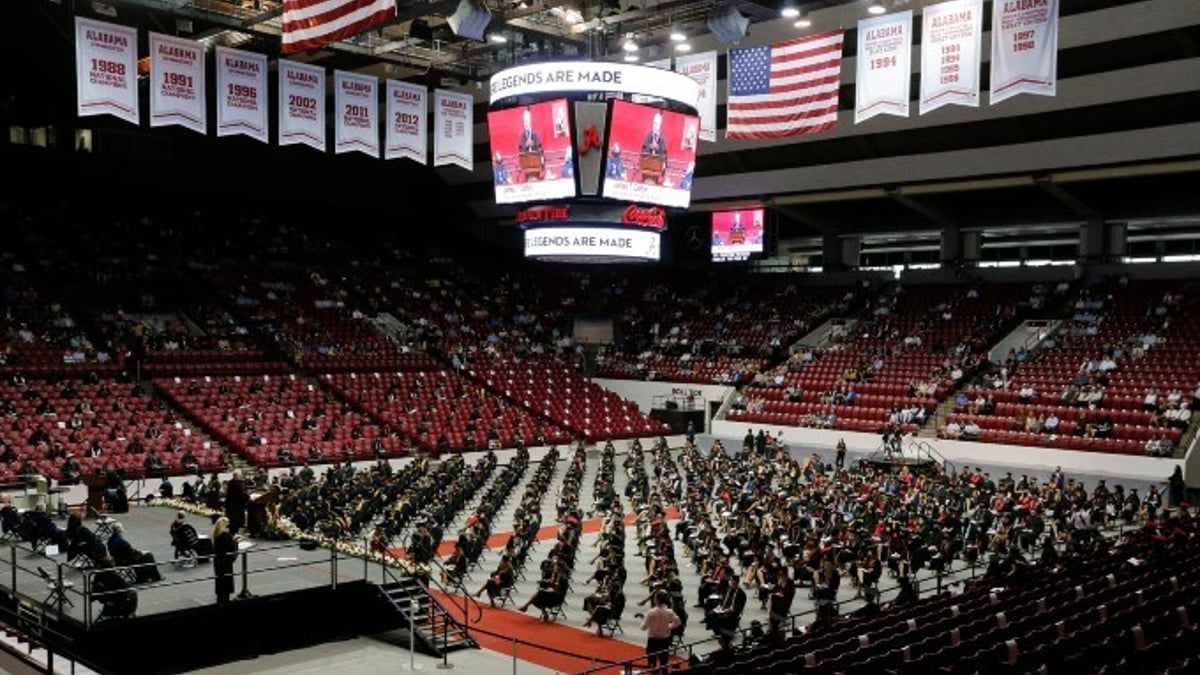Alabama Lottery, Gaming Bill Moves to Full House for Vote

A gaming bill that would allow sports betting and casino-style gambling and create a state lottery in Alabama advanced after it received approval Tuesday from the House Economic Development and Tourism Committee.
The Alabama bill now heads to the full House of Representatives for a vote.
If passed, the bill would allow Alabama residents to vote on whether to create a state lottery and bring sports betting and casino gambling to the state. According to the bill, casinos would be located at VictoryLand dog track in Macon County, The Crossing at Big Creek in Houston County, Greentrack dog track in Greene County, the Birmingham Race Course in Birmingham and Mobile Greyhound Park in Mobile. The Poarch Band of Creek Indians would also have casinos at its three locations, while a final bid for a north Alabama site will go to Jackson or DeKalb counties.
If approved, the amendment would go before voters in the November 2022 election.
“So, 1999 was the last time the citizens of Alabama had an opportunity to vote on a comprehensive gaming plan or any type of gambling in the state,” Republican Rep. Chris Blackshear of Phenix City said during the session Tuesday. “Since then, almost 200 pieces of legislation pertaining to gambling, gaming lottery have been introduced in some form.”
The Alabama Senate approved lottery and casino legislation on April 13, voting 23-9 in favor of a proposed constitutional amendment that would establish a state lottery and allow sports betting and nine casinos.Support, Opposition of Alabama Gaming Bill
Blackshear also highlighted how illegal gambling is taking place in the state now, and how this bill would provide the state a revenue boost and protect players with proper regulatory measures.
“One, gambling exists in the state of Alabama today. That’s a fact,” he said. “Two, it’s mostly unregulated, especially at the state level. Three, the state sees no revenue from the gambling in the state.”
Former Alabama Senator Phil Williams, who now leads the Conservative Alabama Policy Institute, questioned businesses making their way into the state’s constitution.
"It has the government picking winners and losers,” he said. "It literally takes the names of businesses and embeds them in our Constitution."
Joe Godfrey, executive director of the Alabama Citizens Action Program, also opposed the bill and wanted to see more action taken to limit illegal gambling instead of legalizing it in Alabama.
“My question is, name for me any jurisdiction where illegal gambling stopped when it was legalized,” he said. “That’s like saying let’s legalize prostitution in order to restrict it or let’s legalize human trafficking to restrict it. The way to deal with this is to strengthen the laws if they need to be strengthened and enforce the laws; the governor has not allowed the attorney general to have access to state troopers to shut down the illegal gambling operations. That's why it's running rampant in this state.
"It's a deceptive practice on the part of the state to endorse people gambling away their hard-earned money with the fraudulent promise that they're going to strike it rich and win big.”
Former State Treasurer Young Boozer supports the bill, mentioning that the lottery and casinos combined could raise between $500 and $700 million a year. Boozer was a member of the governor’s study group on gambling policy.
"The annual revenues are expected to grow at 3-4% based upon the growth of the state economy in general,” Boozer said. “Alabama is late to the game. Lotteries are offered by 45 states, and they have a standard successful business model that we can reproduce. Casinos with Class III gaming are operating in 41 states and sports betting is now legal in 27 states and it is active in 21.
“It is my opinion that gaming will work in Alabama, and it will be worth it.”
Projections, What the Revenue Will Be Used For
Fiscal projections in the bill estimate lottery revenues from $194 million to $274 million a year. The money would go to a Lottery Trust Fund, which would be used towards a post-secondary scholarship program. The bill also requires the program to have certain debt forgiveness components for students pursuing “in-demand” fields and who remain in the state to work for a certain amount of time.
Gaming and sports betting would be taxed at 20% a year. The bill allows for the possibility to raise the tax by 2% every five years for up to a maximum of 30%. According to the Legislative Services Agency, the tax would generate between $269 million and $403 million a year.
A few of Alabama's neighboring states have legal sports betting. Tennessee launched its all-mobile market on Nov. 1. Mississippi has sports betting in its riverboat and land-based casinos, but not mobile sports betting.
Be first to get our exclusive sports offers!
Join today to stay up to date on your states gambling news and offers.








